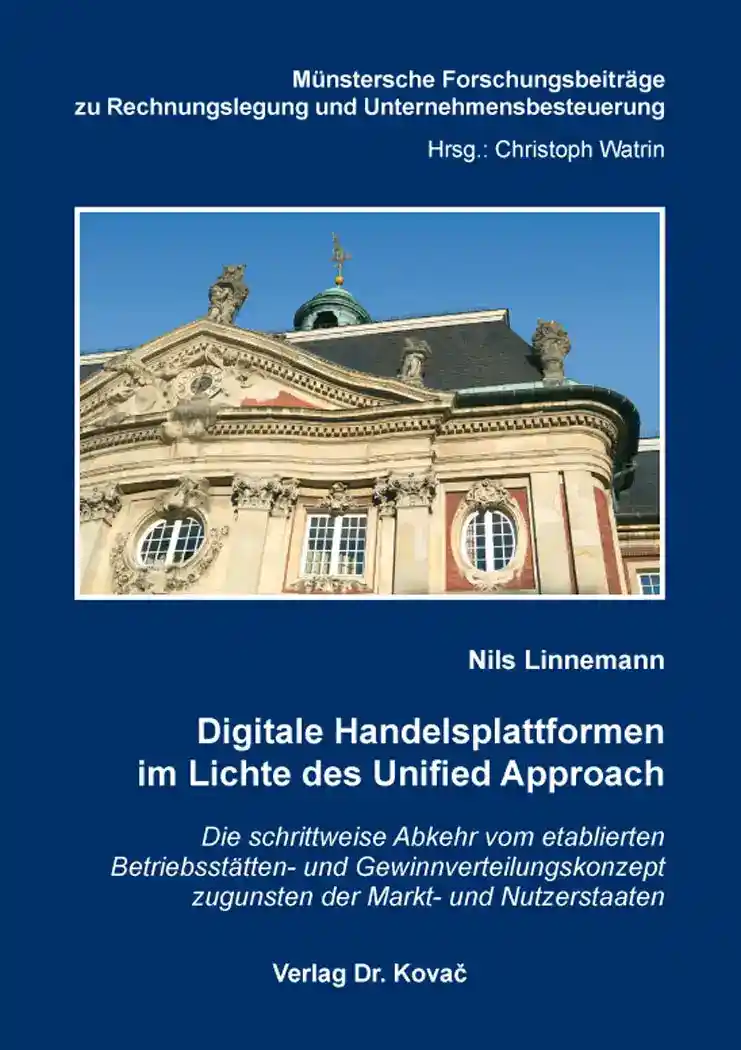Nils LinnemannDigitale Handelsplattformen im Lichte des Unified Approach
Die schrittweise Abkehr vom etablierten Betriebsstätten- und Gewinnverteilungskonzept zugunsten der Markt- und Nutzerstaaten
Münstersche Forschungsbeiträge zu Rechnungslegung und Unternehmensbesteuerung, volume 7
Hamburg 2021, 458 pages
ISBN 978-3-339-12356-5 (print) |ISBN 978-3-339-12357-2 (eBook)
About this book deutschenglish
The digitalization of the economy, which is still increasing but already well advanced, is enabling large technology companies and companies active in other fields of business owning valuable intangible assets to exploit the mobility of their production factors in order to relocate profits and benefit from existing tax rate differentials. As a result of the simultaneously declining relevance of local (physical) infrastructures in the market state, they are increasingly succeeding in satisfying demand on foreign markets without establishing tax links in a conventional sense.
This title, „Digitale Handelsplattformen im Lichte des Unified Approach - Die schrittweise Abkehr vom etablierten Betriebsstätten- und Gewinnverteilungskonzept zugunsten der Markt- und Nutzerstaaten“, examines the Unified Approach, pillar one of the OECD/G20 Inclusive Framework on BEPS’ multilateral reform initiative that is currently discussed in a very controversial manner at international level. The focus is on digital trading platforms that benefit from an almost arbitrary scalability of their business model, which regularly aim at analyzing and monetizing customer data in addition to transaction-based revenues and whose success is mainly due to the use of intangible assets.
The analysis examines the Unified Approach and the accompanying gradual departure from the traditional permanent establishment and profit distribution concept in favor of market and user states with regard to their potential distributional consequences using the example of digital trading platforms to identify weaknesses of the reform concept, to assess it with regard to the Ottawa criteria and, finally, to contribute to the further development of the reform concept.
Keywords
BEPS ProjectBetriebsstättenBetriebsstättenkonzeptDigitale GeschäftsmodelleDigitale HandelsplattformenDigitalisierungG20GewinnverteilungskonzeptInternationales SteuerrechtInternationale UnternehmensbesteuerungOECDOECD/G20 BEPS-ProjektOECD/G20 Inclusive FrameworkSteuerreformUnified ApproachUnternehmensbesteuerungWertschöpfungIhr Werk im Verlag Dr. Kovač

Möchten Sie Ihre wissenschaftliche Arbeit publizieren? Erfahren Sie mehr über unsere günstigen Konditionen und unseren Service für Autorinnen und Autoren.
